Researchers from IBFC CAAS Discover Biomineralized ZIF-8 Encapsulating Fe-SOD: Alleviating Intestinal Oxidative Stress
Researchers of the Innovative Team for Development and Utilization of Functional Feed in South China from the Institute of Bast Fiber Crops, Chinese Academy of Agricultural Sciences (IBFC, CAAS) and the Feed Enzyme Engineering Technology Innovation Team of Beijing Institute of Animal Husbandry and Veterinary Medicine, Chinese Academy of Agricultural Scienceshad demonstrated that the nanoscale material ZIF-8 could effectively encapsulate ferrous superoxide dismutase derived from the Hydrogenobacter thermophilus through a biomimetic mineralization approach. This encapsulation maintained the enzyme's activity in the intestine and significantly alleviated oxidative stress.
The process of aging, weaning, and various physiological and environmental changes all contributes to the generation of oxidative stress, which is a major factor leading to the onset of diseases.Superoxide dismutase (SOD) is a crucial antioxidative metalloenzyme capable of alleviating oxidative stress and is a primary enzymatic defense against oxidative stress in hosts, catalyzing the conversion of superoxide anion radicals into O2 and H2O2, thereby effectively eliminating free radicals as the first line of defense. This process helps maintain the redox balance, exhibiting antioxidative and anti-inflammatory effects, with wide-ranging applications in the medical, agricultural, food, and cosmetic industries. Traditionally, SOD is extracted from various animal and plant sources; however, its practicality in livestock production is hampered by low extraction efficiency, poor stability, and susceptibility to inactivation under acidic and proteolytic conditions.
The research team had solated a novel thermostable Fe-SOD gene was obtained from the Hydrogenobacter thermophilus strain (HtSOD), transformed and efficiently expressed in Escherichia coli with an activity of 3438 U/mg, exhibiting excellent thermal stability suitable for scalable production. However, the activity of HtSOD was reduced to less than 10% under the acidic environment. To address the acid resistance and gastrointestinal stability issues, we employed a biomimetic mineralization approach to encapsulate HtSOD within the ZIF-8 (HtSOD@ZIF-8). Gastrointestinal simulation results showed that HtSOD@ZIF-8 maintained 70% activity in simulated gastric fluid for 2 h, subsequently recovering to 97% activity in simulated intestinal fluid. Cell and in vivo experiments indicated that HtSOD@ZIF-8 exhibited no cytotoxicity and did not impair growth performance. Furthermore, HtSOD@ZIF-8 increased the relative abundance of beneficial microbiota such as Dubosiella and Alistipes , mitigated oxonic stress and intestinal injury by reducing mitochondrial and total reactive oxygen species (ROS) levels in diquat-induced. Together, we elucidated HtSOD@ZIF-8 maintained activity in the intestine and biocompatibility, providing insights into alleviating oxidative stress in hosts and paving the way for scalable production.
The research was funded by theCentral Public-interest Scientific Institution Basal Research Fund (1610242022001-02; 1610242024009), National Natural Science Foundation of China (32072166), Natural Science Foundation of Changsha Municipal (kq2208249), Agricultural Science and Technology Innovation Project Special Fund of Chinese Academy of Agricultural Sciences (ASTIP-IBFC).
The study entitled Biomineralized ZIF-8 Encapsulating SOD from Hydrogenobacter Thermophilus: Maintaining Activity in the Intestine and Alleviating Intestinal Oxidative Stress has been published online in Small journal.
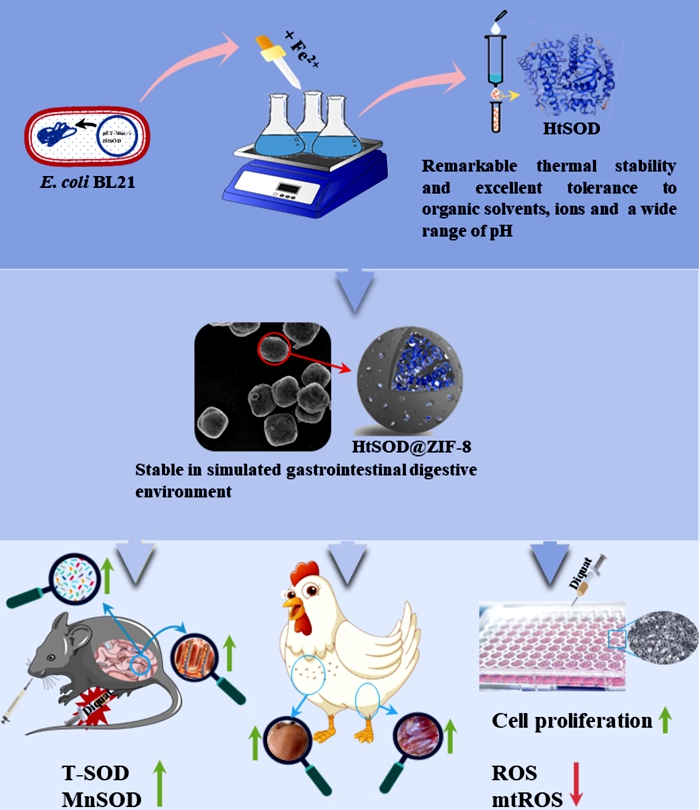
Fig.1 Biomineralized ZIF-8 Encapsulating SOD from Hydrogenobacter Thermophilus: Maintaining Activity in the Intestine and Alleviating Intestinal Oxidative Stress
By Li Yuying (liyuying01@caas.cn)
-
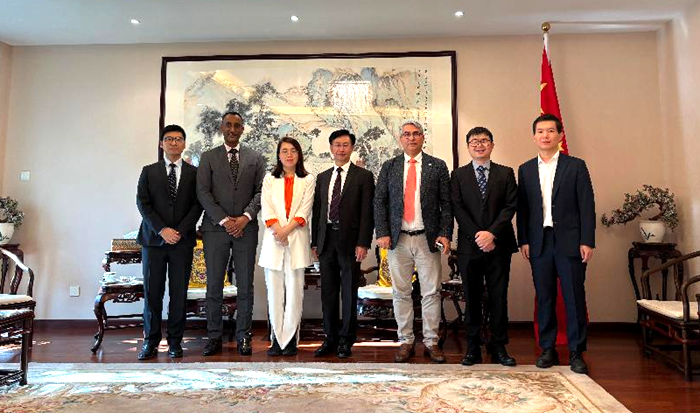 Sep 24, 2025Successful Completion of the Planning and Design Task for the South-South Cooperation Project between the Institute of Apicultural Research, China, FAO and Oman
Sep 24, 2025Successful Completion of the Planning and Design Task for the South-South Cooperation Project between the Institute of Apicultural Research, China, FAO and Oman -
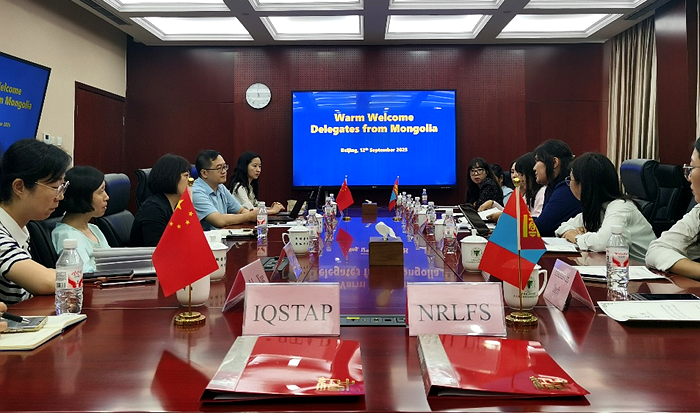 Sep 23, 2025Mongolia National Reference Laboratory for Food Safety and Institute of Quality Standards and Testing Technology for Agro-products Launched Strategic Collaboration
Sep 23, 2025Mongolia National Reference Laboratory for Food Safety and Institute of Quality Standards and Testing Technology for Agro-products Launched Strategic Collaboration -
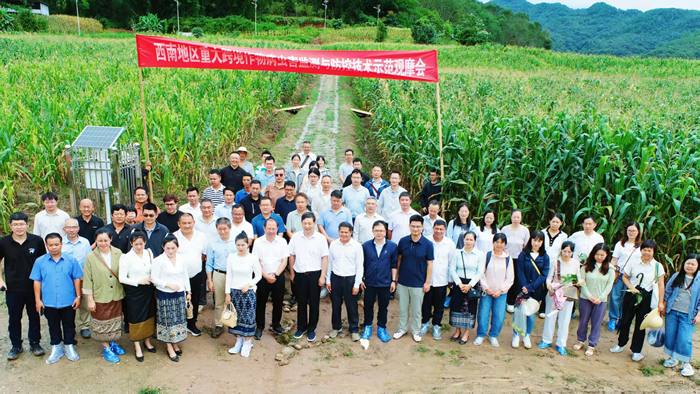 Sep 11, 2025IPPCAAS Advances Joint Prevention and Control of Transboundary Crop Pests and Diseases in Southwest China — Field Demonstration on Monitoring and Control Technologies Held in Jiangcheng, Yunnan
Sep 11, 2025IPPCAAS Advances Joint Prevention and Control of Transboundary Crop Pests and Diseases in Southwest China — Field Demonstration on Monitoring and Control Technologies Held in Jiangcheng, Yunnan -
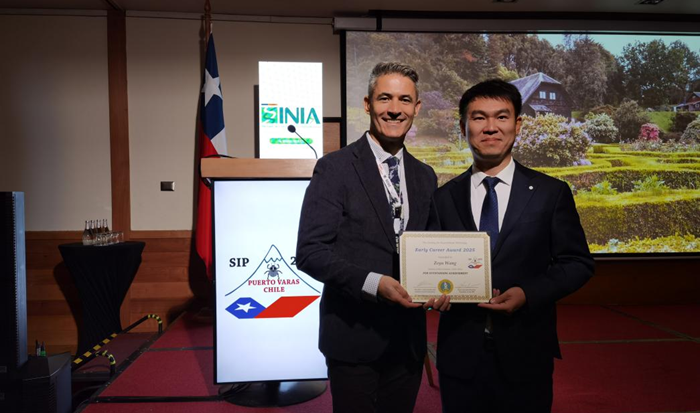 Aug 29, 2025IPPCAAS Expert Wins the Society for Invertebrate Pathology Early Career Award
Aug 29, 2025IPPCAAS Expert Wins the Society for Invertebrate Pathology Early Career Award -
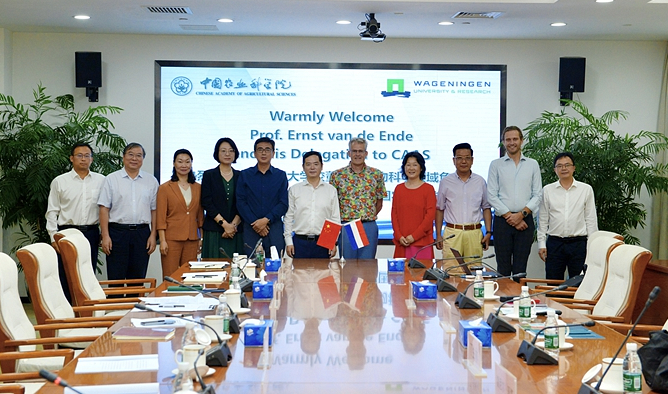 Jul 09, 2025CAAS President meets with WUR Executive Board Member
Jul 09, 2025CAAS President meets with WUR Executive Board Member
